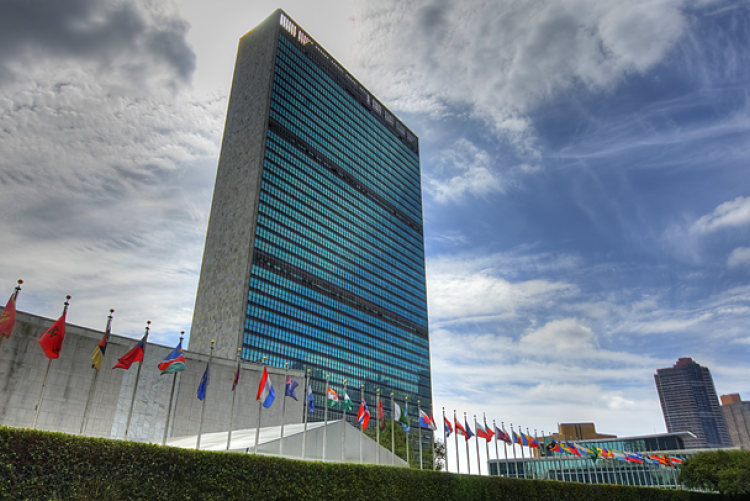UN chastised US Supreme Court decision on abortion rights
Following the US Supreme Court’s decision to upend the constitutional protections for abortion contained in the landmark Roe v Wade ruling, human rights experts described the decision as "shocking".
-

United Nations Building in New York
The United Nations described the US Supreme Court's decision to end abortion rights on Friday as a "huge blow to women's human rights and gender equality."
In a statement, UN human rights chief Michelle Bachelet said: "Access to safe, legal, and effective abortion is firmly rooted in international human rights law and is at the core of women and girls' autonomy and ability to make their own choices about their bodies and lives."
"This decision strips such autonomy from millions of women in the US, in particular those with low incomes and those belonging to racial and ethnic minorities, to the detriment of their fundamental rights," he added.
More than 50 countries with restrictive abortion laws have relaxed their laws in the last 25 years, according to the former Chilean president.
"With today's ruling, the US is regrettably moving away from this progressive trend."
It is worth noting that the ruling does not make abortion illegal, but rather returns the United States to the pre-Roe v. Wade era when each state was free to allow them or not.
Several US states announced legislation to prohibit abortions in their states shortly after the court's announcement.
Human rights experts from the United Nations condemned the Supreme Court decision and urged US President Joe Biden to take all necessary steps to mitigate its repercussions.
In a joint statement, the experts called the ruling "a monumental setback for the rule of law and gender equality," calling it "shocking and dangerous."
They went on to say that the move would increase the number of women and girls seeking illegal and unsafe abortions, as well as exacerbate abortion stigma, creating a "nightmare scenario for those dealing with the uncertainty and trauma of an unplanned pregnancy."
The statement was supported by eight special rapporteurs and the United Nations working group on gender discrimination.
It is worth noting that UN experts do not speak for the global body, but rather report on their findings.

 2 Min Read
2 Min Read










